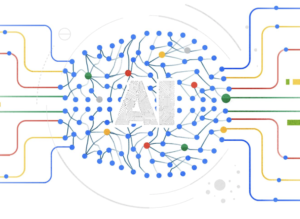

Machine learning developers face an expanded set of management issues beyond merely getting the code right, including the testing and validation of data used in ML models while handling an additional set of infrastructure dependencies. After deployment, those models will degrade over time as use cases evolve.
In response to growing calls for standardization of machine learning operations, cloud and tool vendors are promoting new services aimed at making life a bit easier for data scientists and machine learning developers. Among them is Google Cloud, which this week dropped a batch of cloud AI tools that include data pipelines, metadata and a “prediction backend” for automating steps in the MLOps workflow.
“Creating an ML model is the easy part—operationalizing and managing the lifecycle of ML models, data and experiments is where it gets complicated,” Craig Wiley, director of product management for Google’s cloud AI platform, noted in a blog post unveiling the MLOps services.
The “MLOps foundation” is perhaps the most compelling of the cloud AI tools unveiled this week by the public cloud and AutoML vendor (NASDAQ: GOOGL).
For starters, Google said Tuesday (Sept. 1) it would release a managed service for machine learning pipelines in October. Introduced earlier this year, the service uses pre-built TensorFlow components and templates to develop ML pipelines—a feature the company asserts would reduce the time and labor required to deploy and manage models.
Google noted that machine learning has complicated traditional DevOps practices such as continuous integration and delivery. ML models also require constant training and monitoring; the former for retraining candidate models for testing and deployment; the latter for error detection along with monitoring inference data and tracking the performance of production models.
“Our goal is to make machine learning act more like computer science so that it becomes more efficient and faster to deploy,” Wiley said.
The expanded AI platform also includes a machine language “metadata management” service designed to help developers monitor MLOps workflows and “model lineage.” Google said its metadata service is scheduled to preview by the end of September.
As for machine learning applications, the AI platform package also includes development tools for conversational AI applications such as chatbots and interactive voice response (IVR) bots. In one contact center AI use case, IVR bots can hand off customer service calls to live agents.
The development suite dubbed DialogflowCX provides app developers with access to machine learning models for natural language processing and text-to-speech. It also connects to telecom and cloud platforms, including, of course, Google’s.
The AI platform package also addresses the proliferation of internal MLOps systems among hyper-scalers like LinkedIn and Uber. Data science vendors such as Cloudera and Anaconda have noted that managing machine learning models in production has proven difficult due to “technology sprawl” and the relatively short shelf-life of production ML models.
Hence, MLOps advocates are seeking to place continuous model training and monitoring on the same plane as open source software and application interfaces.
Others such as Algorithmia are also offering MLOps suites with controls and features designed to monitor machine learning models in production.
Recent items:
An Open Source Alternative to AWS SageMaker
Growing Focus on MLOps as AI Projects Stall
It’s Time for MLOps Standards, Cloudera Says
September 19, 2025
- Cisco and Qumulo Partner to Bridge the Data Gap from Edge to Core to Cloud
- Adastra Achieves Elite Partner with Databricks to Accelerate AI-Driven Innovation
- Digital.ai Strengthens Key and Data Protection with White-box Cryptography Agent
- Datalinx AI Builds Leadership Team to Transform Messy Data Into Actionable Intelligence
- Huawei Cloud Showcases Global Infrastructure, Data, and AI Engines at HUAWEI CONNECT 2025
- ScaleOut Software Delivers Next-Gen Caching with Version 6
- Argonne: Turning Materials Data into AI-Powered Lab Assistants
- EY Announces Alliance with Boomi to Offer Broad Integrated Solutions and AI-Powered Transformation
- Rice University Accelerates AI Innovation to Transform Teaching, Learning and Research
- Tigera Launches Solution to Protect AI Workloads Running on Kubernetes
September 18, 2025
- EDB Research Shows 87% of Enterprises Lag in Sovereign AI Adoption
- Zencoder Brings AI Coding to a Billion Users with Universal AI Development Platform
- PingCAP Brings Global Data Leaders Together for TiDB SCaiLE 2025 in California
- Qlik Connect 2026 Set for April 13–15 in Florida
- Domo Selected by Showpass to Deliver Scalable, Real-Time Embedded Analytics Worldwide
- Databricks Launches AI Accelerator Program to Scale the Next Generation of AI Startups
- Kennesaw State Researchers Tackling AI-Generated Fraud to Protect Data Integrity
- Salesforce Deepens Commitment to UK AI Innovation, Increases Investment to $6B
September 17, 2025
- Inside Sibyl, Google’s Massively Parallel Machine Learning Platform
- What Are Reasoning Models and Why You Should Care
- Rethinking Risk: The Role of Selective Retrieval in Data Lake Strategies
- In Order to Scale AI with Confidence, Enterprise CTOs Must Unlock the Value of Unstructured Data
- The AI Beatings Will Continue Until Data Improves
- Software-Defined Storage: Your Hidden Superpower for AI, Data Modernization Success
- Beyond Words: Battle for Semantic Layer Supremacy Heats Up
- What Is MosaicML, and Why Is Databricks Buying It For $1.3B?
- How to Make Data Work for What’s Next
- Top-Down or Bottom-Up Data Model Design: Which is Best?
- More Features…
- Mathematica Helps Crack Zodiac Killer’s Code
- GigaOm Rates the Object Stores
- Promethium Wants to Make Self Service Data Work at AI Scale
- Solidigm Celebrates World’s Largest SSD with ‘122 Day’
- AI Hype Cycle: Gartner Charts the Rise of Agents, ModelOps, Synthetic Data, and AI Engineering
- Data Prep Still Dominates Data Scientists’ Time, Survey Finds
- MIT Report Flags 95% GenAI Failure Rate, But Critics Say It Oversimplifies
- The Top Five Data Labeling Firms According to Everest Group
- Databricks Now Worth $100B. Will It Reach $1T?
- Career Notes for August 2025
- More News In Brief…
- Seagate Unveils IronWolf Pro 24TB Hard Drive for SMBs and Enterprises
- Gartner Predicts 40% of Generative AI Solutions Will Be Multimodal By 2027
- DataSnap Expands with AI-Enabled Embedded Analytics to Accelerate Growth for Modern Businesses
- Acceldata Announces General Availability of Agentic Data Management
- Qlik Announces Canada Cloud Region to Empower Data Sovereignty and AI Innovation
- Transcend Expands ‘Do Not Train’ and Deep Deletion to Power Responsible AI at Scale for B2B AI Companies
- Pecan AI Brings Explainable AI Forecasting Directly to Business Teams
- Databricks Surpasses $4B Revenue Run-Rate, Exceeding $1B AI Revenue Run-Rate
- SETI Institute Awards Davie Postdoctoral Fellowship for AI/ML-Driven Exoplanet Discovery
- Deloitte Survey Finds AI Use and Tech Investments Top Priorities for Private Companies in 2024
- More This Just In…






































